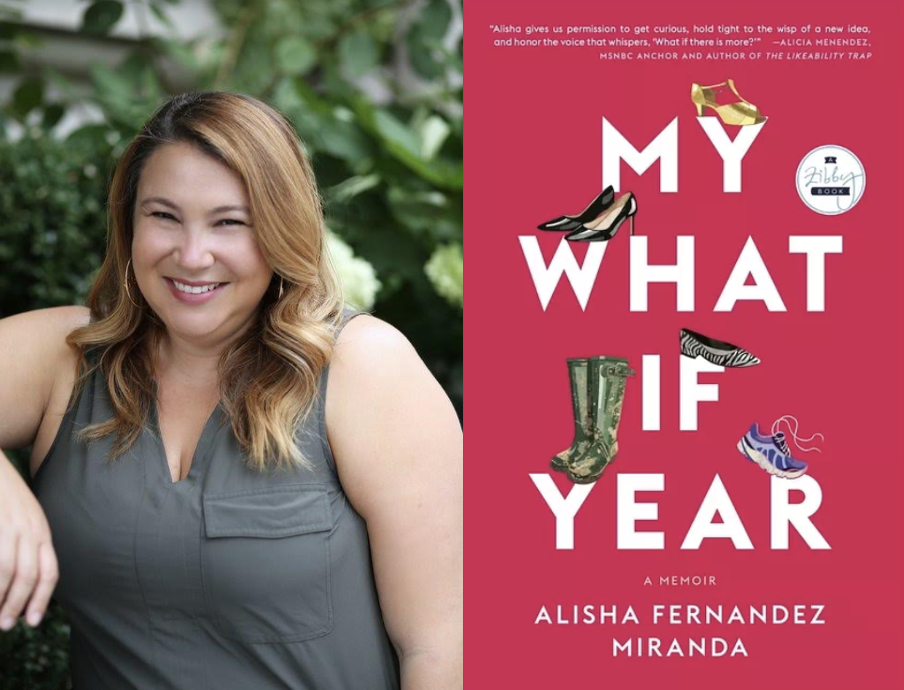
News
Harvard Grad Union Agrees To Bargain Without Ground Rules

News
Harvard Chabad Petitions to Change City Zoning Laws

News
Kestenbaum Files Opposition to Harvard’s Request for Documents

News
Harvard Agrees to a 1-Year $6 Million PILOT Agreement With the City of Cambridge

News
HUA Election Will Feature No Referenda or Survey Questions
Harvard Author Spotlight: Alisha Fernandez Miranda ’04

In the professional world, mastery is often highly praised — a side effect of working hard at one skill and never succumbing to the dreaded option of quitting. Especially in American work culture, it’s customary to choose a lifelong career or an undergraduate degree immediately following high school, maximizing the number of years one can spend becoming an expert in a single field. But when entrepreneur Alisha Fernandez Miranda ’04 stepped down from her position as the CEO of her company to pursue unpaid internships for a year, she inspirationally defied the typical career trajectory. In her debut book, “My What If Year,” Miranda reminds readers that one can never be too far along in their career to pivot to a completely new field and experience the vast variety of work opportunities.
A Harvard College and London School of Economics graduate, Miranda founded I.G. Advisors, a consulting agency for nonprofits whose clients include the Bill and Melinda Gates Foundation and UNICEF. Despite her incredible professional successes, Miranda decided to initiate an experimental career change by pursuing unpaid internships for one year.
Miranda’s career change was not entirely unexpected, as she exhibited a similar fluidity in her interests while an undergraduate at Harvard College. In an interview with The Harvard Crimson, Miranda explained how her concentration in women’s studies allowed her to take advantage of the liberal arts education that Harvard offered.
“When I was deciding what I wanted to study, I could not make up my mind,” Miranda said. “I wanted to do a little bit of everything and I did not feel very well-equipped at 19 to decide what I was going to do with the rest of my life. Women’s studies offered an interdisciplinary course.”
Miranda’s multidisciplinary mind eventually fueled her one-year experiment, as her varied internships included working on a Broadway set, dabbling in the world of art dealerships, managing social media for a fitness brand launched during the Covid-19 pandemic, and helping with the dinner service at a Scottish lodge.
Miranda’s unique ability to follow her newest passions exudes confidence and a sense of self that seem almost unattainable. However, she reflected that she didn’t always have this ability to slow down and consider what she truly wanted out of her work.
“When I was doing internships and early jobs and [professional] experiences when I was closer to my time at Harvard, I was in such a rush,” she said. “I was working towards something, I was trying to get to the next step, I was trying to level up in my career, and that was the most important thing to me. It was a means to an end.”
As an accomplished founder, one would expect the drastic change from founder to first-day-intern must be discouraging. While Miranda candidly acknowledges this fact in the memoir, one of the most admirable parts of the book is her appreciation for the positive aspects of being a beginner at something. It takes a certain trust in oneself to transition from a CEO to an unpaid intern, and she spends the latter half of the memoir focusing on this mindset shift.
In the final moments of the memoir, Miranda reflects on her experience with each internship. “I loved every single one of them, not because they all turned out to be my dream job — most of them didn’t — but because they were different and new,” she wrote. “They forced me to be comfortable, not be the expert in the room.”
Despite this positive experience, Miranda does recognize the struggles and uncertainty surrounding her openness to change — what she dubs the “What If” mentality — that powered this experiment. In fact, the memoir opens with one of Miranda’s favorite poems, “Whatif” by Shel Silverstein. In the poem, Silverstein delves into the negative thoughts that may cloud one’s mind when facing uncertainty, just as Miranda also recognizes her personal doubts during her career change.
“I love the title because I think it’s double-sided in that way. I think ‘what ifs’ can be full of possibilities, but they can also be all of your anxieties,” she said.
“My What If Year” is an extremely accessible, light read about trying something new and stepping outside of one’s comfort zone. But taken more seriously, this memoir also sparks a conversation about the traditional timeline and trajectory of a career.
Why does a midlife career change seem like a drastic exception to the traditional rule of choosing a career in one’s 20s? Miranda’s memoir is an unconventional response to the current emphasis on choosing one’s career early.
“To paraphrase Cinderella in my new friend James Lapine’s show ‘Into the Woods,’ I knew what my decision was: it was not to decide,” Miranda writes. “And, I realized, that that was going to be okay.”
Ultimately, Miranda’s path and story still support the idea of mastery, just of a different kind — the mastery of being a beginner again and entertaining one’s true interests and passions.
—Staff writer Sarah M. Rojas can be reached at sarah.rojas@thecrimson.com.
Want to keep up with breaking news? Subscribe to our email newsletter.
Most Read
- Harvard Dismisses Leaders of Center for Middle Eastern Studies
- More Than 80 HLS Professors Denounce Trump Admin Attacks on Law Firms in Letter to Students
- 2 Years After Affirmative Action Ruling, Harvard Admits Class of 2029 Without Releasing Data
- Harvard Agrees to a 1-Year $6 Million PILOT Agreement With the City of Cambridge
- FAS Dean Asks Center Directors To Show Compliance With Viewpoint Diversity Guidance
